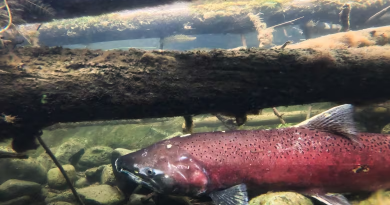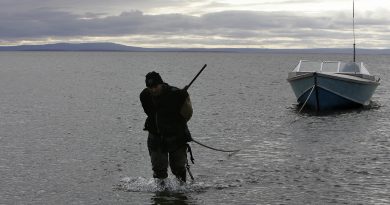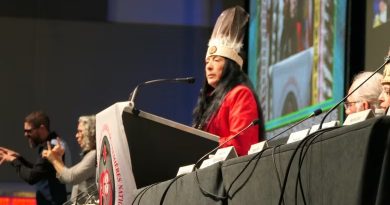Bering Sea region focus of recent papers on climate risk to northern communities
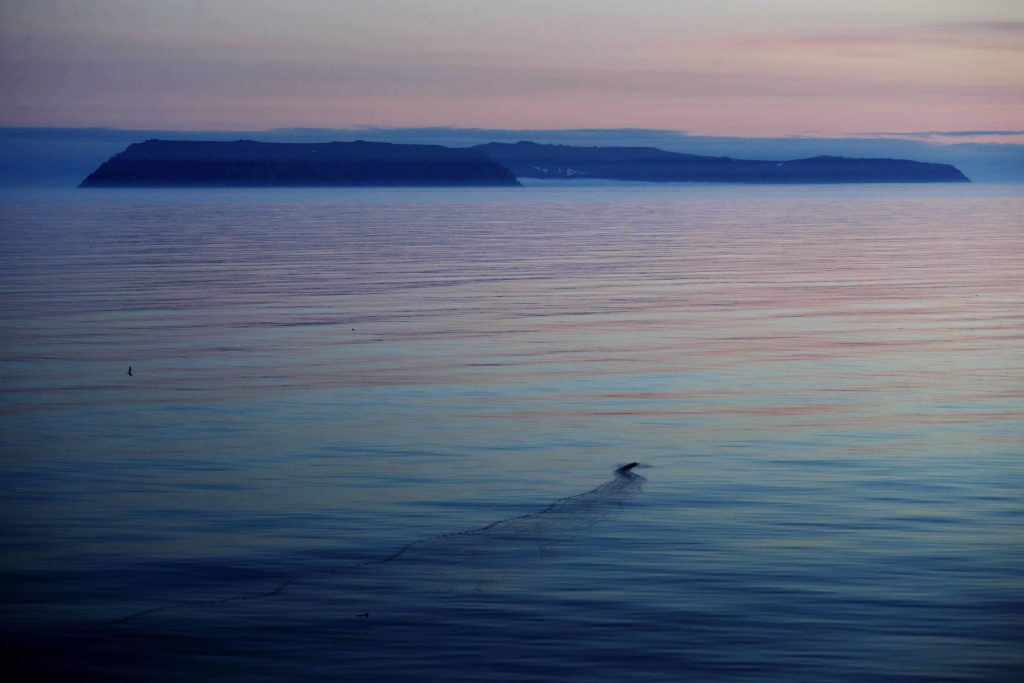
The National Oceanic and Atmospheric Administration, a U.S. scientific agency, released it’s annual Arctic report card this month, warning that the warming atmosphere and declining sea ice are increasingly putting northern communities at risk.
“The Arctic marine ecosystem and the communities that depend upon it continue to experience unprecedented changes as a result of warming air temperatures, declining sea ice, and warming waters,” the NOAA said.
In the 2019 report, the agency singled out the Bering Sea, bracketed on one side by Russia, and the other side by the American state of Alaska, as a region that’s becoming increasingly affected.
There, the southern shelf experienced record-breaking temperatures. In the northern Bering Shelf, the bottom temperatures “…exceeded 4°C for the first time in November 2018.”
Regional elders speak out
The Bering region includes around 70 Indigenous communities in all.
They include Inupiat, Central Yup’ik, Cup’ik, St. Lawrence Island Yupik, Unangan and Chukchi Peoples.
The 2019 report card included a chapter titled “Voices from the Front Lines of a Changing Bering Sea” written after a two-day workshop in Alaska with where 10 elders from eight communities to contribute to the NOAA report.
“Global climate change is one of the many forces beyond our control that are threatening the entire Bering Sea food chain, of which we are a part,” the elders say in the chapter.
“Record-breaking temperatures, reduction in sea ice, and lack of snow are impacting our marine animals, fish, sea birds, and ecosystem as a whole. The evidence exists along our coastlines, in our waters, and is revealed through the hardships we face in bringing harvests home to our families and communities.”
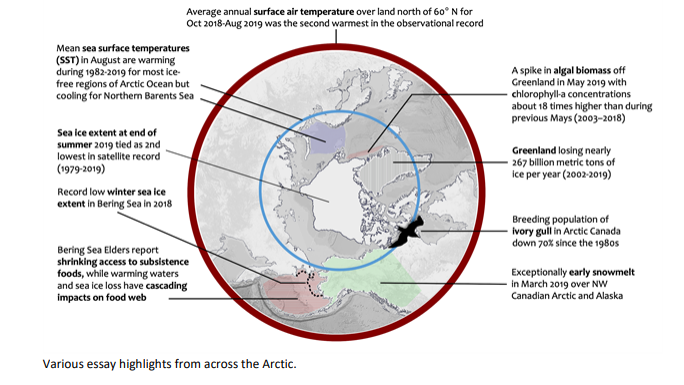
The report card was released the same week as a paper titled “The Record Lower Bering Sea Ice Extent in 2018: Context, Impacts, and an Assessment of the Role of Anthropogenic Climate Change,” published by the Bulletin of the American Meteorological Society.
In that study, the authors looked at Arctic sea ice extent records going back to1850 and compared them to their study period of January to April 2018. The found that sea ice in the Bering Sea shrank to its lowest levels in recorded history in 2018.
“This is an extreme event with immediate and long-lasting repercussions,” said lead author Rick Thoman, a climate specialist at the Alaska Center for Climate Assessment and Policy at the University of Alaska Fairbanks, a news release.
“It’s indicative of very rapid change in the entire northern Bering Sea ecosystem. It has ramifications for everyone in the region.”
Write to Eilís Quinn at eilis.quinn(at)cbc.ca
Related stories from around the North:
Canada: 2019 shaping up to be the second or third warmest year on record, says WMO provisional report, Eye on the Arctic
Finland: Warmer, drier summer than usual in most of Finland, Yle News
Greenland: Greenlanders stay chill as the world reacts to their heatwave, CBC News
Iceland: Former U.S. Secretary of State John Kerry calls for climate action at Arctic Circle assembly, The Independent Barents Observer
Russia: Warm winter expected across the Arctic, The Independent Barents Observer
Sweden: IPCC climate report warns “extreme sea level events” will occur frequently, Radio Sweden
United States: The Arctic shipping route no one is talking about, Cryopolitics Blog

